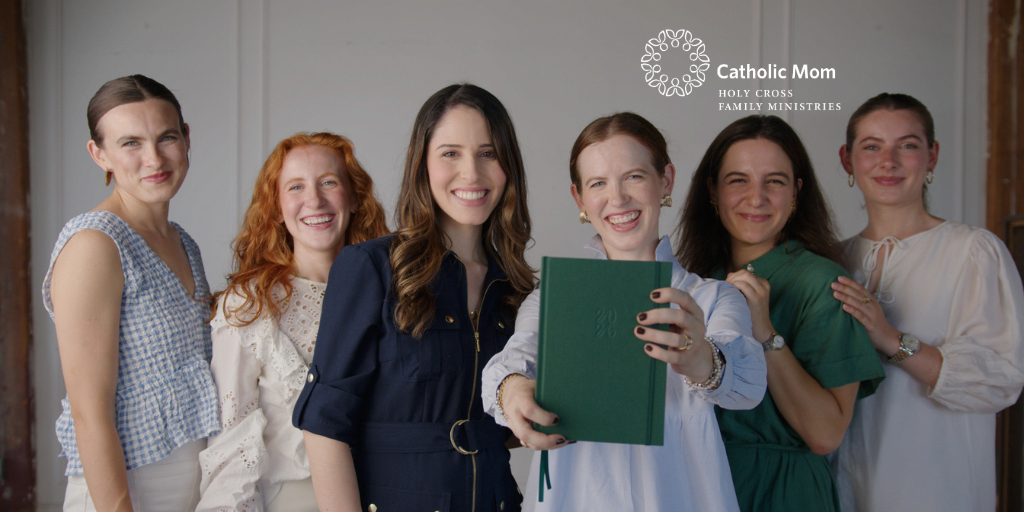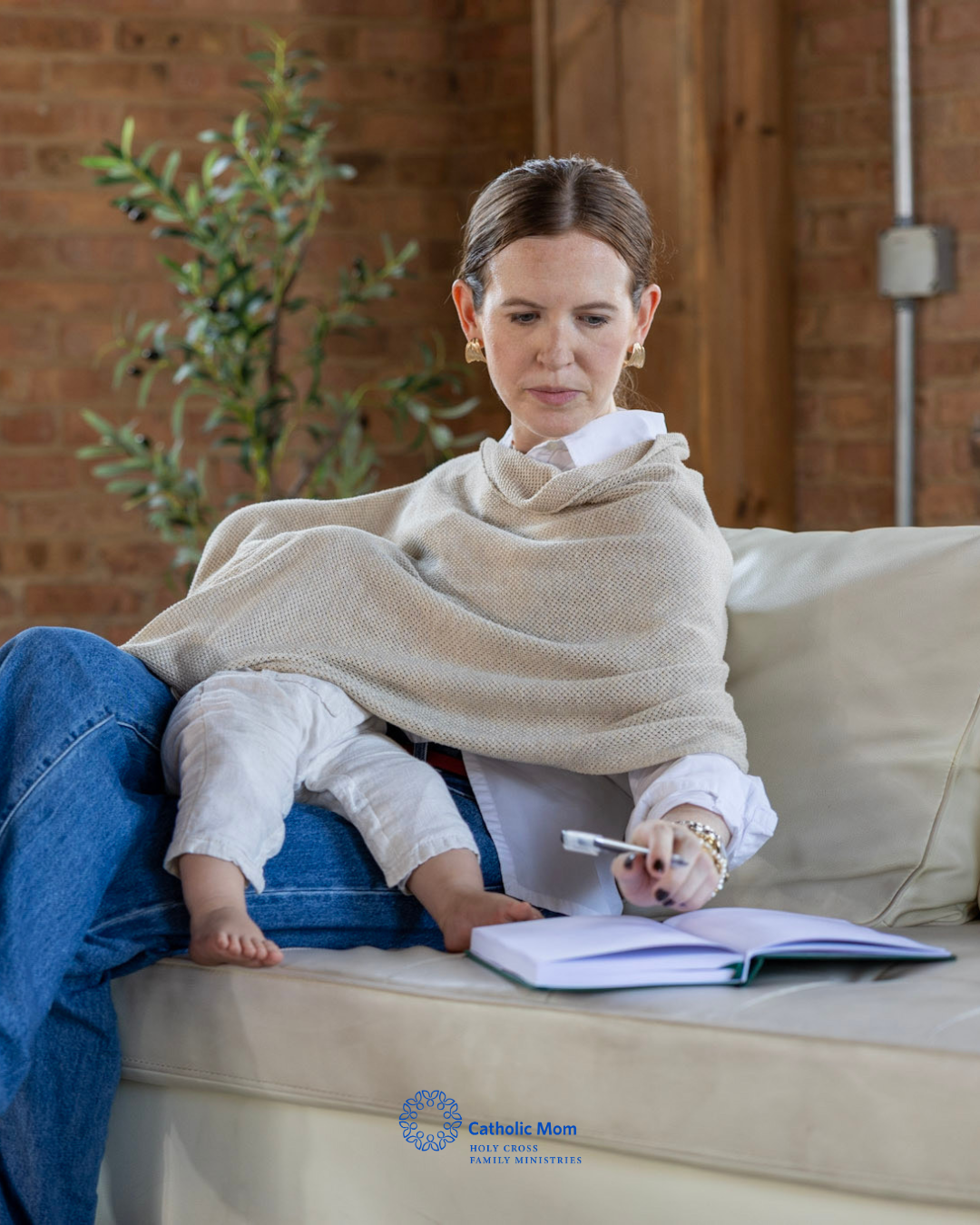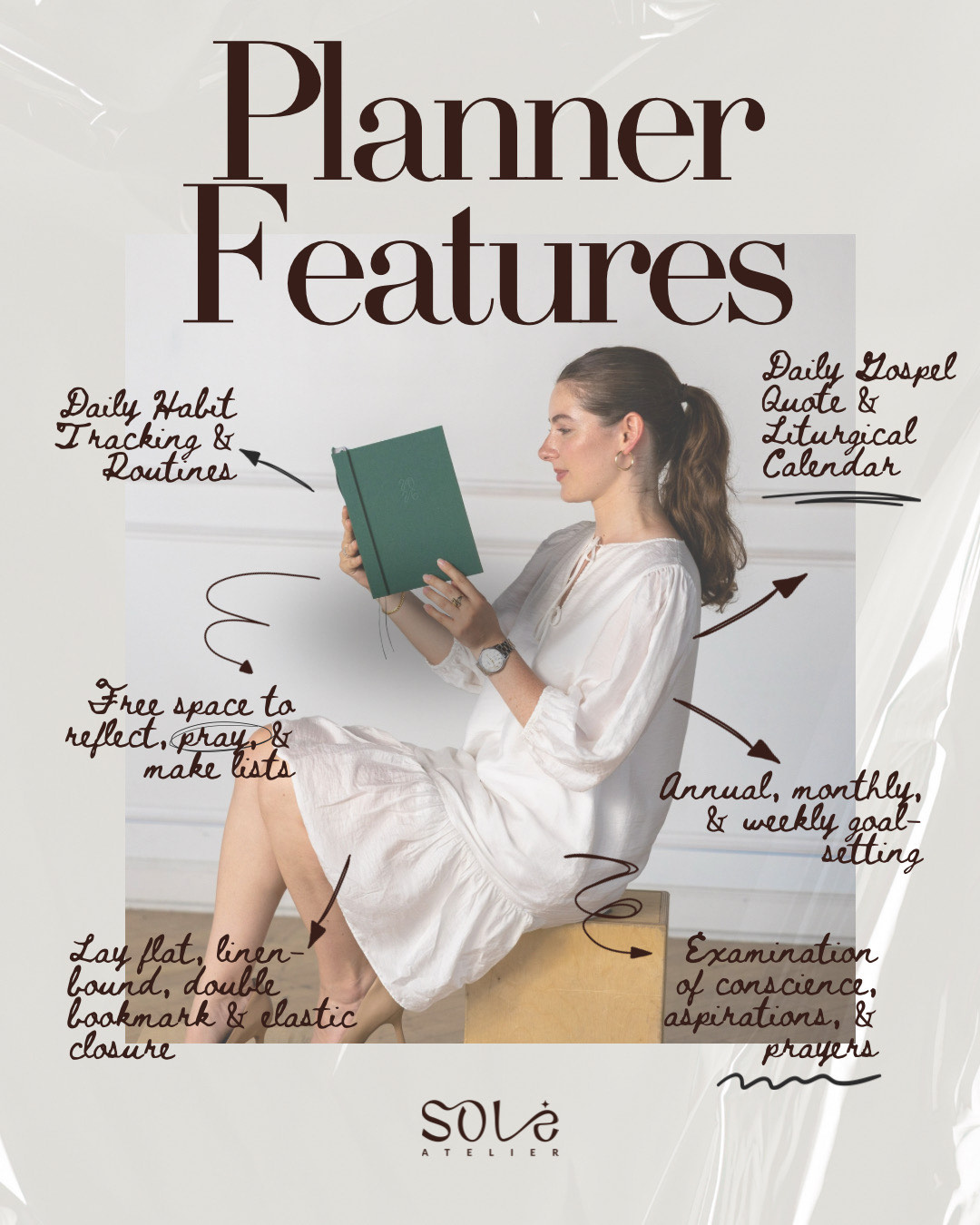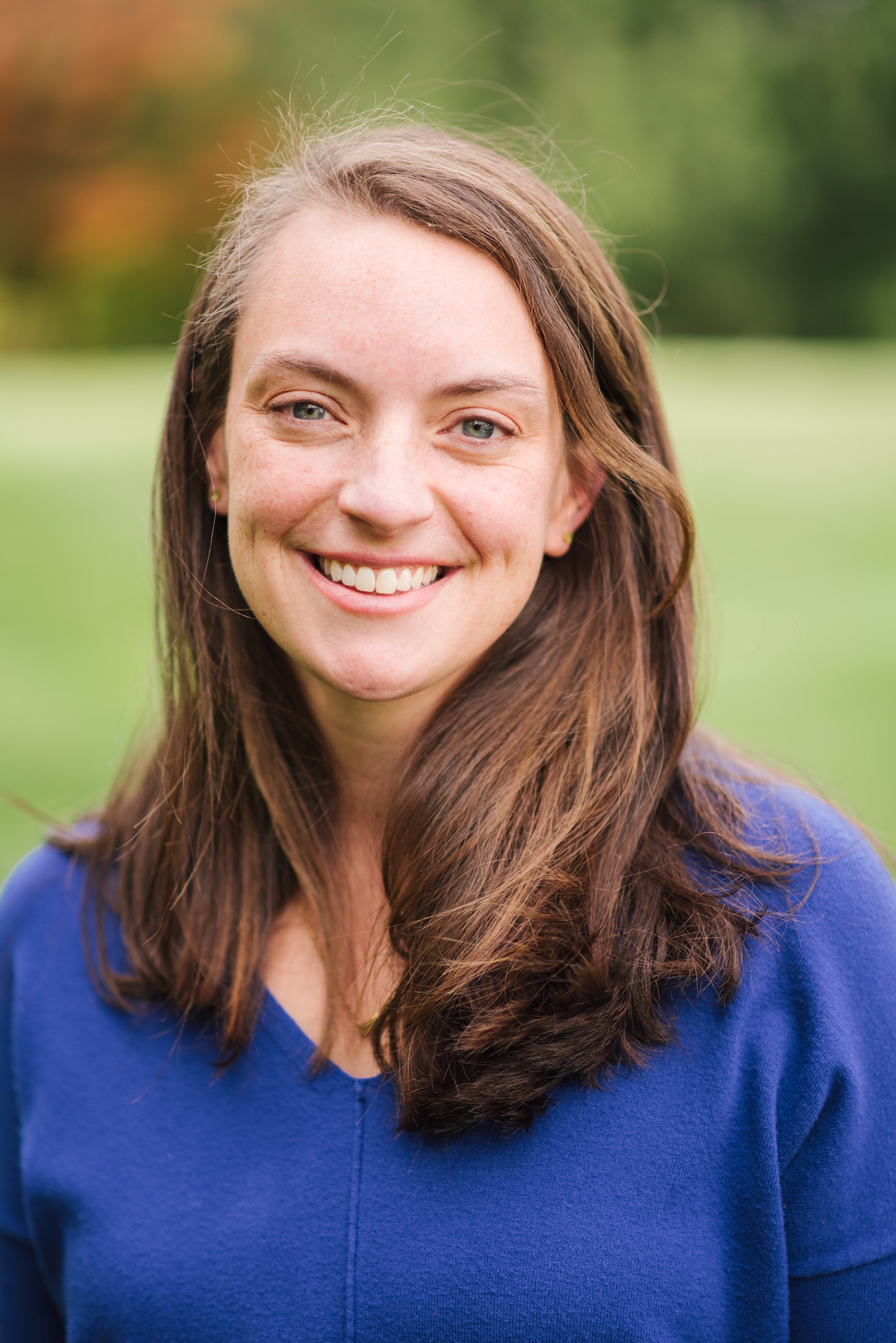
Lindsay Schlegel interviews Carolyn Madigan, co-founder of Solé Atelier, about their heavenly new planner for women.
Finding the perfect planner can feel akin to glimpsing a real, live unicorn. There’s usually a portion you don’t use and another section you wish you were there. Some of us end up giving up on our planners mid-February, because they are too cumbersome or hard to keep up with. To find a planner that appreciates a Catholic lifestyle and makes real space for the realities of our lives is a challenge: one that sisters-in-law Carolyn Madigan and Mariana Madigan have recently taken on.
Solé Atelier launched its first luxury planner, with a “classic, minimalist style [that] makes this planner fit seamlessly into any environment” on October 2, 2025. Over email, I asked Carolyn what sets this planner apart and how she hopes it will help women in “integrating faith and professional practices for excellence in work (ALL work, including being a parent!).” Here’s what she had to say.
This interview has been edited for length.
A Planner with a Mission
Lindsay Schlegel: Your website gives your mission as aiming to “bridge the human and the divine for the striving professional,” which might be understood as a more elevated and insightful way of using the old phrase “work-life balance.” Where do you see the struggles to achieve this for the contemporary woman?
Carolyn Madigan: While each age brings a new balancing act and a view of what success looks like, it usually boils down to a similar basic human struggle: How do I use the time that I am given well? How can I be more effective and efficient? How can I love those nearest to me (and not make spending time feel like a checklist item)? And finally, how can I order my days with a supernatural lens, letting God be the one in charge?
Against a virtuous response to each of those questions for us was self-indulgence manifested in an excess of screen time. To cut this out, we created something physical, tangible, bringing beauty and practicality with it. It is a way to slow down and pause. On our phones we can have a million tabs open: recipes, a great article, Amazon, our email. In a planner that doubles as a prayer journal, we focus on one page at a time. Not to say that we’re not juggling a lot (quite the opposite!), but that our focus is singular. Because of that, we are able to engage our soul and be more aware that we’re not at it alone.
Instead of focusing on work-life balance, if we shift to examining whether we’re living in God’s presence, then we typically end up readjusting multiple times throughout the day, with peace knowing that God is there. Saint John Henry Newman wrote, “to live is to change, and to be holy is to have changed often!” Desiring to bridge the human and the divine came from wanting to bring God into this struggle to live, work, and love well and to employ the ordinary means to make it happen.

LS: In the introductory pages of the planner, you explain that the book includes blank pages each week “for bringing order to the particular areas of your life where you are striving to have purpose and peace” and suggest they might be used for meal planning, weekly to-do lists, packing lists, or book recommendations. How do you relate order to holiness?
CM: Grace builds on nature. Order is a human virtue that grace can build on to have supernatural consequences. On the human level, it typically refers to the arrangement or sequence of things to allow for proper functioning. We can work on setting small goals to achieve this like waking up on time, making our bed, turning off notifications on our phones to be present in meetings, dressing well, etc. It’s good to exercise the habit as exterior order is a peek into how the interior order is being lived.
Sometimes, though, it can go to the extreme when it becomes all about us achieving, or being voluntaristic—through my own will, I can do anything! It leaves little space for God and His will in our lives. Disappointment is more likely when we don’t check everything off the list. Christian order goes beyond ourselves. On a supernatural level, the exterior order leads you to the interior order found in the heart, in what we prioritize. When we keep asking God what HE wants out of our time and our days, there’s less anxiety about what we’re not able to accomplish because we’ve already given Him the day. Then the end of all activity is oriented towards Him, towards heaven.
The blank spaces were envisioned as a way to write down the things we carry in our hearts but may not have time in the moment to tackle. Having this physical space leaves more brain space for what we have in front of us. It also makes our prayer time fruitful, bringing more purpose and peace. Sometimes when I sit down to pray, I’ll spend the first three minutes getting all the lists out of my head so I can focus on my conversation with God and letting Him love me, instead of rambling about all the things I need to do. The struggle to live the virtue well for God is holiness.
LS: There's plenty of breathing room to customize these pages for women in a variety of seasons of life. What do you see as the common denominators that most women will find useful?
CM: One of my dreams is that the monthly intention of the Holy Father becomes the most revisited page. With so much division, it’s so good to look to Pope Leo for what, as Peter, is on his mind for the world and the Church and to be able to unite my work with his intention.
Beyond that, we’ve been using the Top 3 in my family as an intentional measure of what we want to accomplish each week, which enables us to hold each other accountable and support each other.

LS: You’ve partnered with OptimalWork for certain elements of the planner. Can you explain what that is and how their philosophy will serve the women who use this planner?
CM: OptimalWork goes through the brain science behind how we approach challenges and difficulties in our work to help us strive to live and work towards our highest ideals. Engaging in their MasterClass (for which those who purchase a planner get a discount!) helps to more effectively use the habit tracker, schedule planning section, and set the Top 3 Goals. Learning about the difference between interruptions (i.e. baby or co-worker needing your help or attention) and distractions (too many tabs open, notifications beeping for our attention on our phone) helps us work more effectively and efficiently.
My favorite part is learning how to effectively reframe a challenge into an opportunity for growth. As women, we tend to be the hardest judges of ourselves. Seeing more opportunities instead of failure brings a willingness to struggle with a fighting and joyful spirit, which, because we are connectors and creators of community, affects all those in our milieu.
Share your thoughts with the Catholic Mom community! You'll find the comment box below the author's bio and list of recommended articles.
Copyright 2025 Lindsay Schlegel
Images: copyright 2025 Solé Atelier, all rights reserved.
About the Author

Lindsay Schlegel
Lindsay Schlegel is a daughter of God, wife, mom, editor, and speaker. She’s the author of Don’t Forget to Say Thank You: And Other Parenting Lessons That Brought Me Closer to God and host of the podcast Quote Me with Lindsay Schlegel. Lindsay seeks to encourage, inspire, and lift others up to be all they were created to be. Connect with Lindsay at her website, LindsaySchlegel.com.


.png?width=1806&height=731&name=CatholicMom_hcfm_logo1_pos_871c_2728c%20(002).png)
Comments